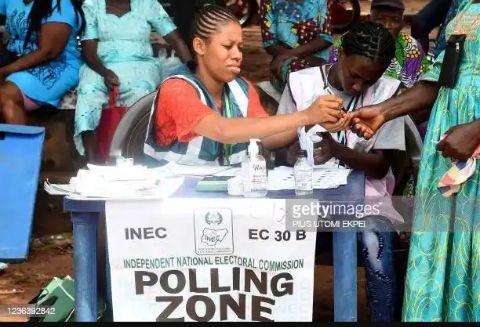Even though it may seem disappointing that the country’s governorship elections have been postponed, given how anxious and ready Nigerians are to cast their ballots tomorrow, the move of the elections from March 11 to March 18, 2023, may perhaps be a blessing.
The election was postponed in response to the Independent National Electoral Commission (INEC) stating that it will take five working days to reconfigure the Bimodal Voters Accreditation System (BVAS) used in the 176,974 polling places where voting will take place and a decision by the Court of Appeal in Abuja, sitting as the Presidential Election Petition Tribunal, granting the commission the right to do so.
The elections in 2023 could ultimately determine if Nigeria’s fragile unity and democracy survive if all the conflicting events are any indication.
The court specifically ordered that the Labour Party (LP) and the Peoples Democratic Party (PDP), the two political parties contesting the results of the presidential election, may request certified accurate copies of the BVAS backend data.
Undoubtedly, the postponement of the election has saddened many Nigerians, but it appears necessary if the commission is to be held responsible for the poll’s conduct.
Tragically, new incidents of violence and tragedy are being politicized, which could exacerbate the already high levels of tension. Never before have the elites of the south been so viciously divided along racial and religious lines.
Given the blatant malfunction and technical flaws of the BVAS machine, which the commission described as “technical glitches,” INEC could have performed better than it did at the presidential election last Saturday if a generous budget for the general elections had been allocated.
Also, to dispel any suspicion of fraud, INEC informed Nigerians that the results would be transferred online. The commission must make sure that the setup of the BVAS machine does not violate the complainants’ rights to retain election materials now that it has guaranteed that all data from the most recent elections are secure.
Unscrupulous Nigerians are determined to sabotage this democratic process by intimidating people and coercing them to vote for candidates against their will, despite the government’s and well-intentioned Nigerians’ best efforts to ensure that citizens can carry out their civic duties without fear of harassment.
Police officers and civil defense personnel must be effectively mobilized for the work to ensure the implementation of proper law and security enforcement. Security personnel should be impartial and disciplined enough to prevent troublemakers from stirring up unrest during elections.
Yet, given that the outcome of the election demonstrates the triumph of the people’s power, Nigerians should be mindful of the influence of their voices and votes. Nigerians need to be cool, collected, and cautious right now.
Elections should not be viewed as a life or death situation, but rather as a means to an aim. For the sake of everyone, everyone must be on deck. It is time for legal teams representing politicians to put the interests of justice above the narrow-minded interests of their clients or the financial rewards of their services.
They ought to put on the moral armor of wise judgment, bravery, and concern for the common good. Nigeria should be on your mind right now. And each of these calls for giving, waiting, and perseverance. Nigeria now has a second chance to make up for lost opportunities from previous elections thanks to the postponement of the governorship election.
In conclusion, Nigerians should organize themselves to support the candidates of their choice, and the voters and party leaders should be careful to use their right to vote in line with the laws established by the Election Act. They should be reminded that having the freedom to support the politicians of their choice does not give them permission to commit crimes or incite animosity toward people because of their race or religion.
Source: Punch











